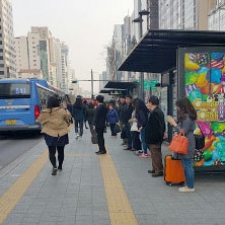In recent months, South Korea has been amending its regulations set out in the Game Industry Promotion Law, such as mandating games companies to publish their profitability from drawing cards.
Now, the Korean Democratic Party congressman Lee Sang-heon has proposed an alteration to the law as regards overseas gaming companies; he has suggested that those without a South Korean address or place of business should either set up a local company there or find a domestic agent in the country to ensure that the letter of the law is followed.
Introducing local regulatory rulings is not unprecedented when it comes to games, with China being among the most well known examples. The country’s regulator gives out licences to games it approves of, and overseas developers work with Chinese publishers to release their games there. Although, somewhat ironically, it appears that Chinese games are South Korea’s main target in these potential amendments.
International Practices
As reported by GameLook and autogenerated to English, Lee Sang-heon said: "Many Chinese games immediately started to induce krypton gold after opening the server, making a lot of profits, and then stopped less than a year after going online. The supplementary bill is to protect domestic users in Korea."
While larger companies such as Tencent and MiHoYo will likely be able to operate in compliance as is, South Korea has concerns about smaller and medium-sized companies using controversial marketing methods when promoting to its citizens.
Another reason cited for the potential law change is the common practice in South Korea to "eat and run" where mobile games are suspended with no way of players getting refunded. As South Korean laws do not apply internationally, it proves difficult to hold overseas companies accountable.
The compliance rate of companies within South Korea is reportedly 99.1 percent, although it drops as low as 56.6 percent abroad.
Chinese games are also being targeted specifically with the potential amendment as their current success suppresses many local games companies. During its first month, Sensor Tower data revealed MiHoYo’s Honkai: Star Rail to be among the top-grossing games in the Korean market. It has even raced past Genshin Impact's revenue in most the world.





















